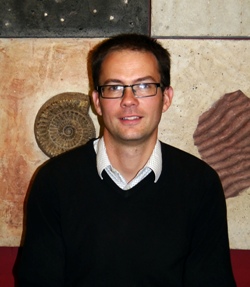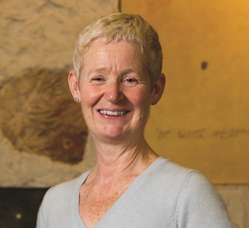 Mike Streule & Lorraine Craig* explain why fieldwork is so important in academe and industry.
Mike Streule & Lorraine Craig* explain why fieldwork is so important in academe and industry.
Much has been written in these pages (and elsewhere) questioning the value of fieldwork in undergraduate geoscience education – and justifiably so. The financial expense, burden on staff time and complex planning required for successful fieldtrips on undergraduate courses are considerable. Such burdens set geoscience courses apart from all other engineering and physical science courses, as university financial controllers well know.
So we need to be sure that if we are going to do it, we are doing it for the right reason, with an outcome for the students that is achievable and valuable to them. While the burdens of fieldwork set undergraduate geoscience courses apart, we would argue that graduates who complete geoscience courses with a rich fieldwork programme also are set apart from the crowd, and that therefore we must continue to overcome the burdens.
Integrative
The key reason lies at the very root of geoscience. Ours is an integrative subject. It draws together training and understanding from many different core scientific principles, applies them to the Earth and challenges us to yield solutions to scientific problems. As the questions we face in academia and industry become ever more complex, so too do the breadth and depth of scientific understanding required to come up with solutions.
 Increasingly, no single individual will be capable of creating such solutions. Collaborative efforts among many co-workers will be needed. We need true experts in various fields to drill down to ever greater depth, while being able to communicate and integrate that knowledge with their co-workers. Fieldwork training provides a uniquely valuable environment in which to train future geoscientists to do just this.
Increasingly, no single individual will be capable of creating such solutions. Collaborative efforts among many co-workers will be needed. We need true experts in various fields to drill down to ever greater depth, while being able to communicate and integrate that knowledge with their co-workers. Fieldwork training provides a uniquely valuable environment in which to train future geoscientists to do just this.
Field trip participants develop a sense of collective purpose as they tackle challenging problems, requiring collaboration in groups. That sense of ‘being a ‘real’ geologist’ generates an effective working community of practice over the duration of an excursion. Successful participants will therefore find that they are more successful in tackling and solving problems, either in academia or industry, later on. It doesn’t matter if many of those graduates never do fieldwork again; they will have had a hugely powerful and valuable opportunity to train themselves in the collaborative endeavour that will be required of them in the future. No other educational vehicle in the subject can achieve this so effectively and pervasively as fieldwork.
Yes, it is expensive, and yes, it takes dedicated staff to make it happen, but it makes geoscience graduates more truly valuable in the workplace than many others. Other scientific subjects, particularly those that have evolved more recently, are finding themselves slowing down at the forefronts of their disciplines – because while their graduates may possess individual expertise they don’t have the co-working skills needed to bring together solutions effectively.
Geoscience has been a long-established integrative science. Let us not throw away our main method of achieving the very thing that other disciplines so desperately need.
*Rio Tinto Senior Teaching Fellow & Director of Undergraduate Studies, Department of Earth Science and Engineering, Imperial College, London.